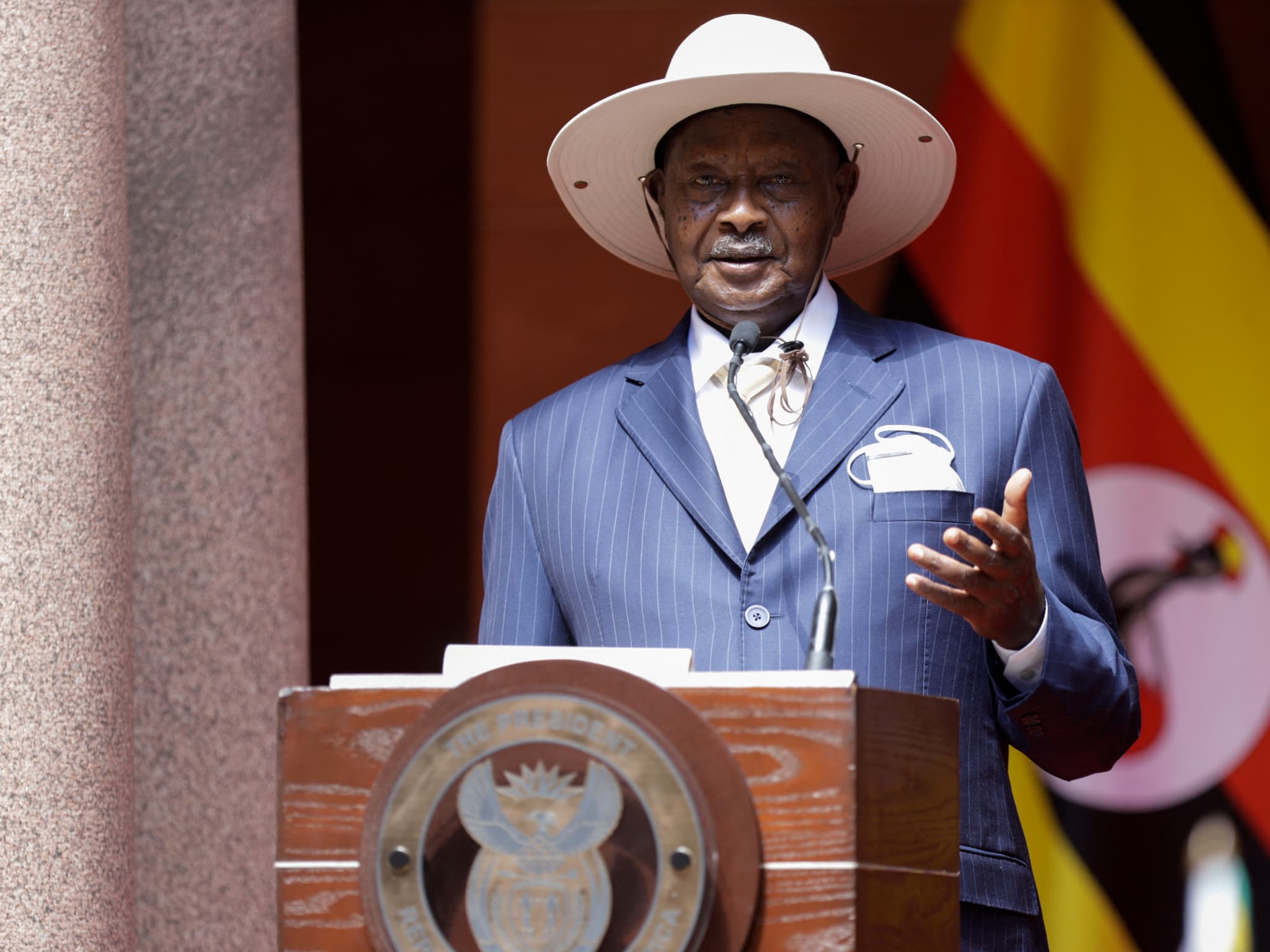#EarlySignals - Jan 2022
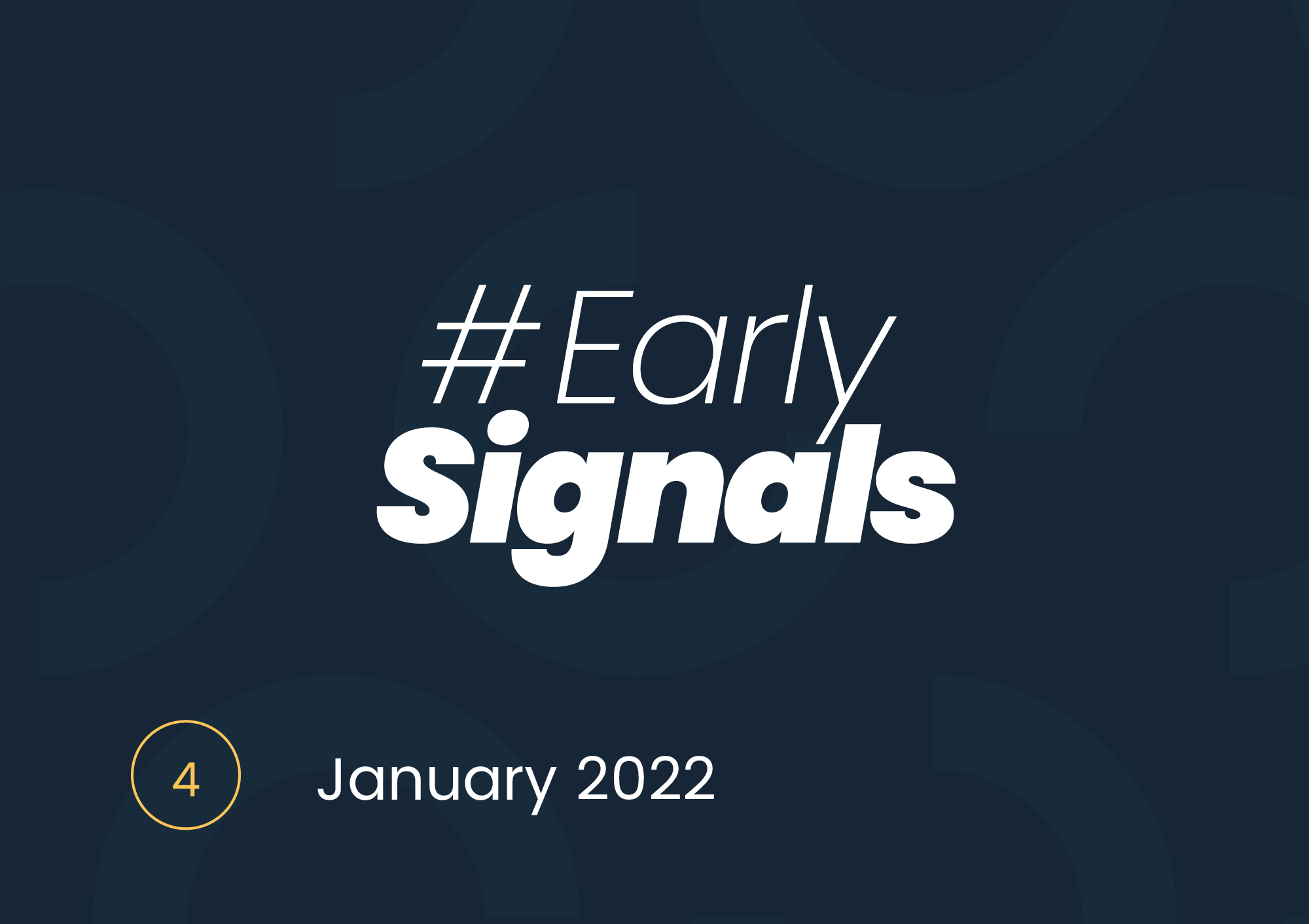
NEWS
Africans are optimistic about economic prospects in 2022
A survey conducted by the Afrobarometer in 34 African countries in mid-2021 indicates that almost half (48%) of Africans believe that economic conditions will be better, or much better, in 2022. The wealthiest and youngest are the most optimistic. 30% of respondents expect things to get worse, and 15% expect them to stay the same. Does this optimism suggest a vote of confidence from Africans towards their respective governments? It’s all relative. As shown by previous Afrobarometer surveys, while the majority of citizens support their governments’ pandemic response, there is still a confidence gap when it comes to the management of resources and vaccines.
QUOTE
“Our main priority is to make sure that significant trade starts to happen across the continent under the AfCFTA regime.”
Talkmore Chidede, investment expert at the AfCFTA Secretariat.
Launched a year ago, the ambitious AfCFTA agreement is struggling to materialise. What are the causes of this delay? The pandemic has certainly created an additional hurdle to overcome, but the gap between the free market vision of the AfCFTA and the national economic development priorities of participating countries is the main cause of delay. There are also tense negotiations and disagreements over the rules of origin of the 8,000 or so products that will be traded under the agreement, as well as lobbying by external partners, notably the United States, that advocate for bilateral free trade agreements. Nevertheless, numerous technical milestones have been reached, such as the establishment of a fund to help countries adapt to the loss of import revenues and the creation of a digital platform to provide information on customs procedures.
FIGURE
USD 4.3 billion – amount raised by start-ups in Africa in 2021
This is 2.5 the amount that was raised in 2020! Nigeria, South Africa, Egypt and Kenya are the big four, accounting for 81% of the funding. How can this stellar performance be explained? The recent wave of digitisation, spurred by the pandemic, is one of the main factors, combined with the rise of fintech as well as e-commerce, agriculture and health sectors. Fintech alone accounts for almost two-thirds of total funding, followed by logistics and energy sectors. In Nigeria, where two relatively young startups, Opay (2018) and Flutterwave (2016), have achieved unicorn status in 2021, the government has worked with a range of stakeholders on a bill aimed at creating a better regulatory environment for startups, which is set to go to parliament. Should it become law, the bill will send a strong signal to investors.
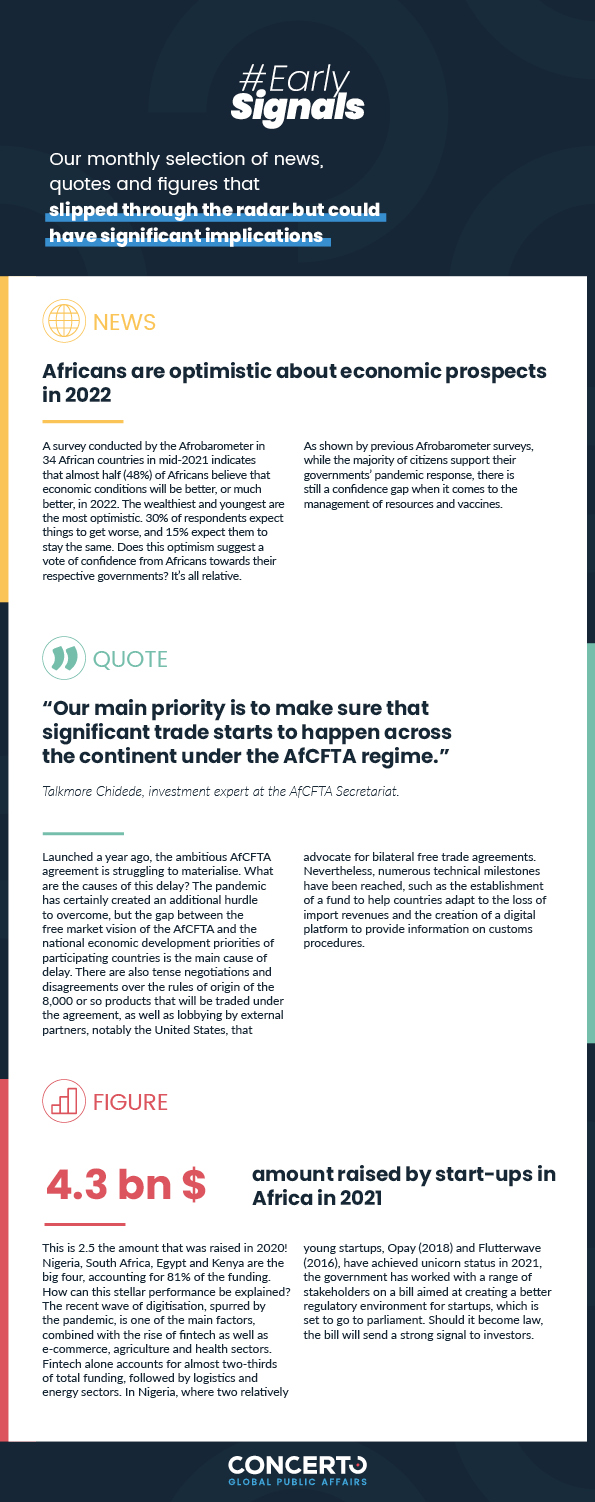
Discover our case studies.

PR: Concerto welcomes CAPZA as a shareholder
Africa Electoral Watch | Guinea 2025 - Post-electoral analysis
Africa Electoral Watch | Uganda 2026 - Pre-electoral analysis
Africa Electoral Watch | Central African Republic 2025 - Pre-electoral analysis

